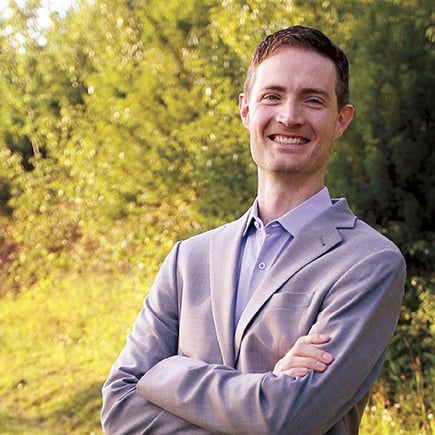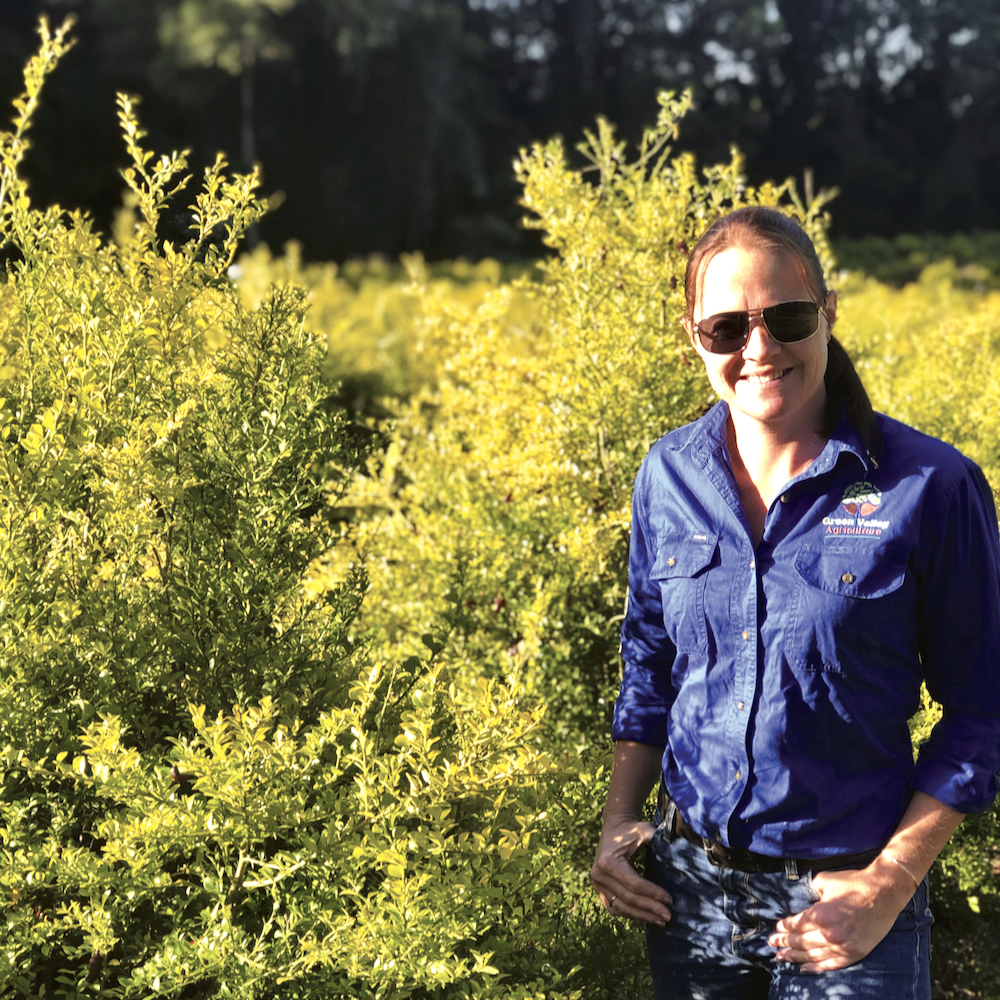Cutthroat. Vicious. Not for the faint of heart. Adjectives like these usually get saved for Wall Street bankers, high stakes poker or perhaps bull riding. It’s rare to find a person who’d apply them to making and selling potato chips. Take it from Ryan Albright, though. If anything, they’re much too mild for what this proud New Brunswicker, founder and CEO of the Covered Bridge Potato Chip Company, has gone through and continues to face.
The epitome of on-the-go, Country Guide caught up with Albright after we had watched him navigate the fast-paced world of value-added snack food for the last 15 years. With his company’s products in more than 4,500 stores across Canada and counting, Albright is a case study of a farmer who wants to add more value to the farm, and what happens when the plan works.
Can a farmer become victim of their own success? Can one person excel both at production agriculture and at value-added marketing? These are big questions.
Read Also

Sibling squeeze part 6: The emotional stakes of a family legacy
The final instalment in a six-part series exploring the challenges of sibling conflict and the effect it can have on…
Albright grew up on a potato farm south of Hartland, N.B., home of the world’s longest covered bridge — 1,282 feet if you are wondering — and the namesake of his future company, Covered Bridge Potato Chip Company, hereafter CBP.
Operational since the 1920s, the farm was begun by Albright’s great-grandparents. Two following generations also dutifully worked the land before Albright and his brother Matt began working at the farm.
Completely unsure of his future, the plucky Albright decided to forgo university and instead enrolled in the Atlantic Agricultural Leadership Program, an experience-based leadership program that lasted two years. At 18, he was the youngest entrant ever accepted into the program.
Since he would never go to formal post-secondary, this was his education, and he spent quality time over those two years rubbing shoulders with many well-respected and successful farmers in the Maritimes and taking as many notes as possible to enhance his street-smart education.
“This was a unique opportunity for me,” says Albright, now 41. “It was a door opener.”
What he couldn’t learn at AALP, he picked up from a business 101 CD from his local Staples store. And at the same time, he continued working at home, learning how to get even better at growing potatoes.
“Basically, I wanted to farm, but I wanted to branch out into other things,” Albright says.

Well, he picked a great time to enter the business full-time in 2002. Prices topped $32 per barrel, almost triple the typical price in those days, and they were able to sell 2,000 open barrels and the brothers invested a new 150-horsepower tractor. It was good they did; it was going to be a while before they could afford to again. The next year was one of the worst ever for potato producers with prices plunging to $1 to $2 per barrel. The bottom completely fell out of the market and the Albrights, along with many other potato farmers, were in trouble.
Not one to take it lying down, Albright got on the phone and furiously began to hunt for markets for a shed full of potatoes nobody wanted. He called every potential buyer east of Ohio from the Canadian border down to Mexico.
But there was also an opportunity in this.The Albrights weren’t the only ones in dire straits. Other farmers in New Brunswick, Quebec and Prince Edward Island were also in tough and needed help.
Without planning it, Albright’s first business, a brokerage dubbed Carleton County Spud Distributors, was born.
But it took commitment. After spring planting in 2004, Albright did something that would become very familiar to him: he hit the road. He spent a full month logging 12,000 kilometres going up and down the eastern U.S., spending nights sleeping in his Toyota Corolla, a tent and $30 hotels, including breakfast.
“When I came back I had a lot of contacts and two contracts,” he says, beaming. It gave him new optimism that he could determine his own path with potatoes.
He began thinking big and he told his dad his plan: a state-of-the-art warehouse and a wash shed on the side, which happened to carry a price tag of $600,000. His father Wayne diplomatically let his son know this may be a stretch.
But Albright didn’t cave, and with hindsight, his father admits he’s glad his son talked him into it. “It’d be hard to imagine the farm without it now,” says Wayne. “It was one of the best things we ever did.”
Although the Albright brothers “made some money and lost some money” over the next couple of years, they were trending upward. By 2006, they bought out their grandpa, uncle and dad, even though Albright was just 25 and Matt 22. Dad’s only condition on the sale was that if his boys needed to hire a hand, he would be first on their list. “No issue there,” says Albright.
Their most audacious move came the same summer the boys bought the farm. The brothers took a walk one day up to a nearby hill at the farm. Only 20 minutes away was a stunning 120-acre potato farm that had been recently gone up for sale. Adjacent to a pristine body of water, it carried a $5,000 per acre price tag, which was extremely high at the time.
“I said to Matt, ‘Look, we can do this. We can buy this property. But I had this other idea. I want to make our own potato chips. If we can only do one or the other, I want to value-add and get into potato chips.’”
It turns out they did both, buying the farm and establishing CBP all in the same year.
Albright had visited with enough people in the potato industry over the previous few years and believed their family could be successful with a value-added chip company, too. There was one glaring difference, though, with their potatoes. While 99 per cent of the chip world is supplied by familiar, predictable white russets, the Albrights had a rich history of dark russets, which taste as unique as they look when in chip format, which is primarily due to a higher sugar content compared to whites.
Albright’s first order of real business was to acquire a chip production line, which he spotted in Ohio the year before when he’d been trying to make a sale. A small company had shut down its chipping operations, but the equipment remained intact. It seemed the perfect fit for the Albrights.
Which is when they learned that sometimes you learn the hard way. The brothers brought the line home, started rebuilding it, and soon saw it would have been better if they’d bought new.
Getting established
A big piece of the puzzle, though, was where to set up shop. They needed a location that would make sense for their business, and soon, downtown Hartland seemed a no brainer. Albright could help reinvigorate the downtown waterfront, complete with a boardwalk along the St. John River, ending at the famous covered bridge.
Again he was persistent. Albright estimates the Town of Hartland shot him down eight times between 2006 and 2007, although he admits he lost count. He didn’t understand why the town would not want what Albright saw as a guaranteed winning business in the heart of town. Neither did David Alward, the former New Brunswick premier who was serving as minister of agriculture, fisheries and aquaculture for the province when Albright tried to get established in the downtown. Familiar with the Albright family, Alward thought the idea was brilliant.
“Ryan could see with his marketing into the eastern seaboard with chippers down there,” says Alward. “There was an opportunity to have a top-quality product. Quite frankly, it was a lost opportunity for the town of Hartland.”
It turned out no artist’s conceptions or spinoff revenue models could turn the council. The proposal was rebuffed. Albright fumed.
“I had no support, like zero,” he says. “When they told me no, I don’t take no very lightly. When someone says no, I’m just going to push 10 times harder. Especially when it’s a flat-out no. I will just push.”

With the distance of time, Albright realizes how ambitious his plan was, but he makes no apologies for trying to start the first new chip company in Canada in decades. And although it’s a stone’s throw from Hartland in Carleton County, the pressure it put on him was tremendous. Before Albright even had his first PO, he built everything and even had the chips ready to go.
“That put extra stress on him in terms of infrastructure when he built,” says Alward. “To be able to manage it … again, that’s part of being an entrepreneur-businessperson. They’re going to adapt and continue moving forward. That’s exactly what Ryan has done, and because of it there’s a lot of people working in our area.”
You cannot serve two masters
An early victim of his own success, Albright soon realized that finding time to help on the farm and also to run CBP would be more difficult than ever. A farmboy at heart, he had to make a difficult choice. Matt took over farm operations full time while Albright focused on chips.
The decision stuck. The last time Albright sat working in a tractor was 15 years ago.
It’s proverbial that building a value-added agrifood business from scratch takes time and effort. He estimates he worked 80-plus hours every week in the early years. His trusty Corolla averaged about 150,000 kilometres per year driving to tradeshows where he and his second-ever employee Krysten McShane, the marketing manager, would try and secure contracts and make connections.
They would load up their booth, designed specifically to fit in his sedan, and drive to wherever the next show was about to open. Anaheim, Boston, Calgary, Chicago, Montreal, New York City, Quebec City, Toronto, Vancouver have all been visited more times than he cares to count. His rule, which he sometimes still broke, was that he would only travel 15 hours by car in one direction, before he’d consider a flight.
Quickly, they both had their eyes opened to the world behind snack products. It was at a food show in NYC where Albright first saw “GF” on a label and had no clue it meant gluten-free. McShane’s mother was a celiac and she quickly got him up to speed. Almost in the same breath, she convinced him that GF could be a good product differentiator. After figuring out a GF production method without compromising on taste and flavour, they decided to go for it. At the time, their factory was only the second in North America, and the first in Canada, to be 100 per cent GF certified.
When they weren’t on the road, they were busy doing everything together from designing labels and artwork, nutritional facts, marketing campaigns; you name it they did it. For years, it was Albright, McShane and Mike McCartney, CBP’s first hire, who still works at the company today.
“We were definitely involved in everything,” says McShane with a laugh. “Every conversation Ryan had, he involved us. We were the only people he could involve at the time.”
On paper she worked in marketing, but McShane often found herself doing things well outside of a typical marketing role, including sales, helping on the production floor, taking courses in food safety. Her biggest marketing win was helping come up with the company’s initial slogan: The way chips should taste.
The scattered, go-go-go pace is nothing new to anyone who works in a value-added agrifood industry, something everyone learned as the business continued to grow.
“It’s always pedal to the metal,” Albright says. “If you take your foot off the gas, you’re only going one direction, that’s backwards. You have to be growing because costs keep going up. One of the ways to manage those costs is to get more efficiencies of scale.”
That led to a lot more “yes” answers whenever an opportunity presented itself. The farm expanded at one point to 650 acres, they took on distribution in Newfoundland, which Albright terms one of his “worst-best” learning moments, and private label work. It was the last item that really helped the company. Private labeling, making the chips start to finish with someone else’s name on the bag, has given CBP stability to pay for overhead costs.
In the last three years, CBP has had multiple private-label contracts with major brands and even launched a co-branding effort with East Coast Lifestyle, a Halifax, N.S.-based clothing brand. Albright and owner Alex MacLean are friends and decided to make an ECL-specific chip which prominently featured ECL on the bag with a smaller area showing it was CBP that created the chips. In turn, ECL promoted CBP through its social media platforms, which have in excess of one million combined followers. The results spoke for themselves and the two have since collaborated on a second co-brand venture.
“You both play on each other’s customers and you’re getting a bigger wider range of audiences,” Albright says. “When you have two smaller companies that can co-brand together, it’s very easy, very nimble, much less paperwork and much more flexible.”
And that’s perhaps the biggest plus for his “big-small” company that is independently owned and operated: Decisions can be made lightning fast compared to multinationals.
Albright and his research and development team meet every two weeks, constantly reviewing competitors and assessing if there is a new market play for them with a competing or new product.
“If I decide I’m going to make new chips, 90 days we can do it. We are agile,” Albright says.
All the innovation has continued to have a positive economic spinoff for the local county and province as a whole. It’s not lost on the likes of Alward, whose job was to do the same thing as premier.
“A hundred jobs in our area is significant,” says Alward. “That’s big business and that’s important business.”
Labour, supply chain issues and COVID-19
The farm still produces enough potatoes each year to supply every single bag under its own name or a private label, now tracked in the eight-figure range. Today, Albright’s biggest need is to create a third shift at the plant, which means he needs 18 to 20 more people. His timeline to have the third shift up and running is “two months ago,” a sarcastic nod to the current labour market woes. The company has introduced automation where possible. It relies mainly on people, but it’s a true struggle.
“Leading up to COVID-19 it was more challenging to find people,” he says. “It’s gone from challenging to impossible.”
When the pandemic began in earnest around March 2020, nothing materially changed with the consumer-facing business. If anything, business went up as people stayed home and quickly gravitated to comfort food. Online sales increased substantially. It was a great time to bank extra savings for what came, because by December 2020, COVID-19 caught up to Covered Bridge.
“A year ago, all of a sudden, it just started hitting everybody,” Albright says.
As 2021 counted down, his cost for cooking oil increased 100 per cent within two months. Then propane doubled, and parts and raw materials now require quadruple the time to arrive, sometimes longer. Despite what is publicly touted, Albright says not to believe the hype. “The supply chain around the world is 100 per cent broken.”
Already having absorbed costs for months, Albright says the company has two primary options, both of which are unattractive: increase prices or continue to eat.
“We’re really taking it on the chin,” he says. “It really inhibits your growth.”
It’s times like these, though, that demonstrate how the value-added business has morphed from a hustle and grind physical game to a quieter, 60-hour-per-week but with increased pressure on his mind.
“Financial reporting constantly, food safety, all the worries that go on, it’s a mental drain and it’s totally different,” he says. When you’re younger you can handle it a lot better. I’m 41 now. I try to be home by 7 o’clock, that’s my rule, I try to be. I try not to work every weekend.”
He’s able to achieve this because of good people. His vice-president Brook Dickinson oversees multiple portfolios within the company and has a drive similar to Albright.
“A lot of my work ethic comes from seeing how much time he’s put in,” Dickinson says. “I try and follow that lead and match it. We can be honest with each other, hard on each other if need be. He gives a lot of support and runway to make decisions.”
Advice to fellow farmers
While having a value-added business seems like a fantastic idea to many farmers — and often, the adventure lives up to the billing — be aware it can skew towards the ranks of all-consuming and away from hobby. At his current pace, Albright will have worked roughly two careers’ worth of time. He didn’t take a paycheque for years while CBP was establishing itself. He has no kids and would be hard pressed to call himself an active farmer anymore.
“You have to be prepared to give up a lot. You’re working all day, all night, every weekend. I underestimated the sheer scope of the entire project and what it would lead into,” he says with a pause.
He says one of his best business decisions of all time was to hire a financial controller.
“When you’re small, maybe for two years at best, you can get away with more of a bookkeeper, but a good controller can get you quick and accurate numbers all the time,” he says. “I only knew what I knew. I waited too long to have that kind of resource.”
And when you find yourself at the top of your company, as successful entrepreneurs do, it can be a challenge to find a mentor. Albright, when he has time, talks with a hired consultant who works specifically with presidents and CEOs of companies.
“You just don’t realize the continuous challenges that you’re going to face. In reality, there’s a lot that you don’t plan on, and you don’t know what you’re going get hit with. It never is easy and you have challenges every single day, some massive and others manageable.”
But even though he’s experienced all those things, and more, he isn’t framing it as a complaint.
“As long as you’re prepared for that, have at it,” he says. “That’s the entire life.”
















